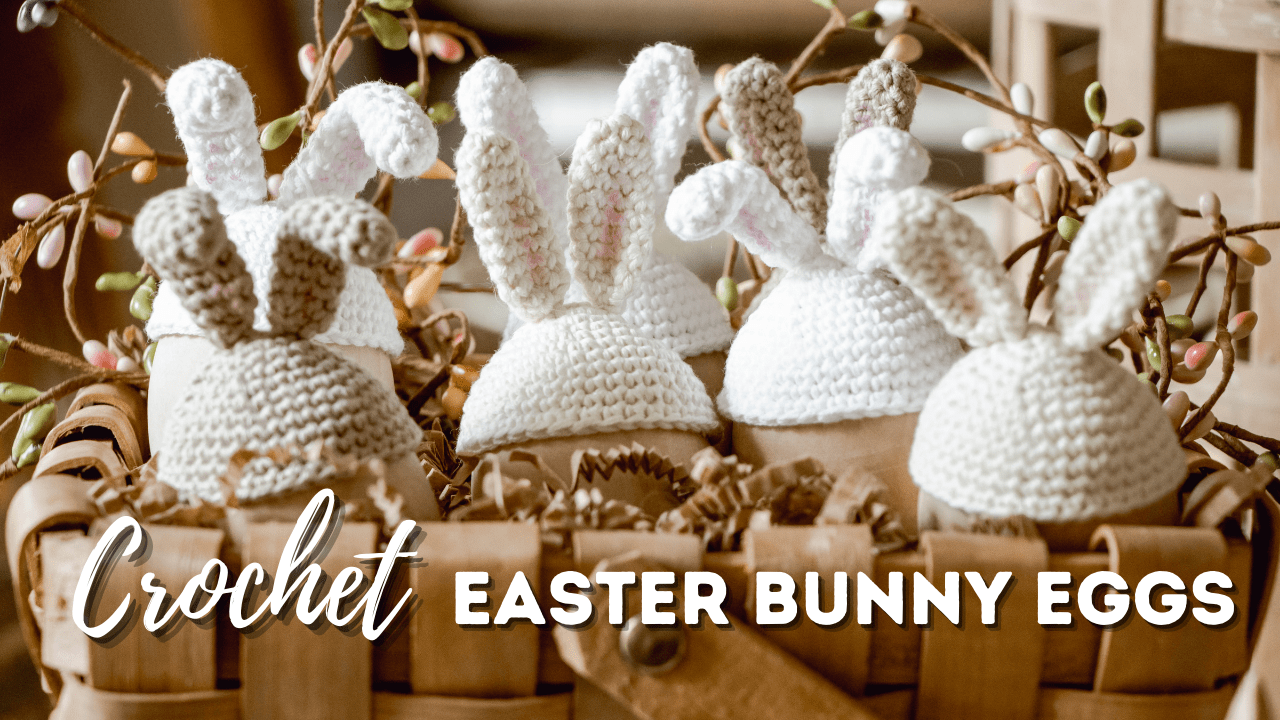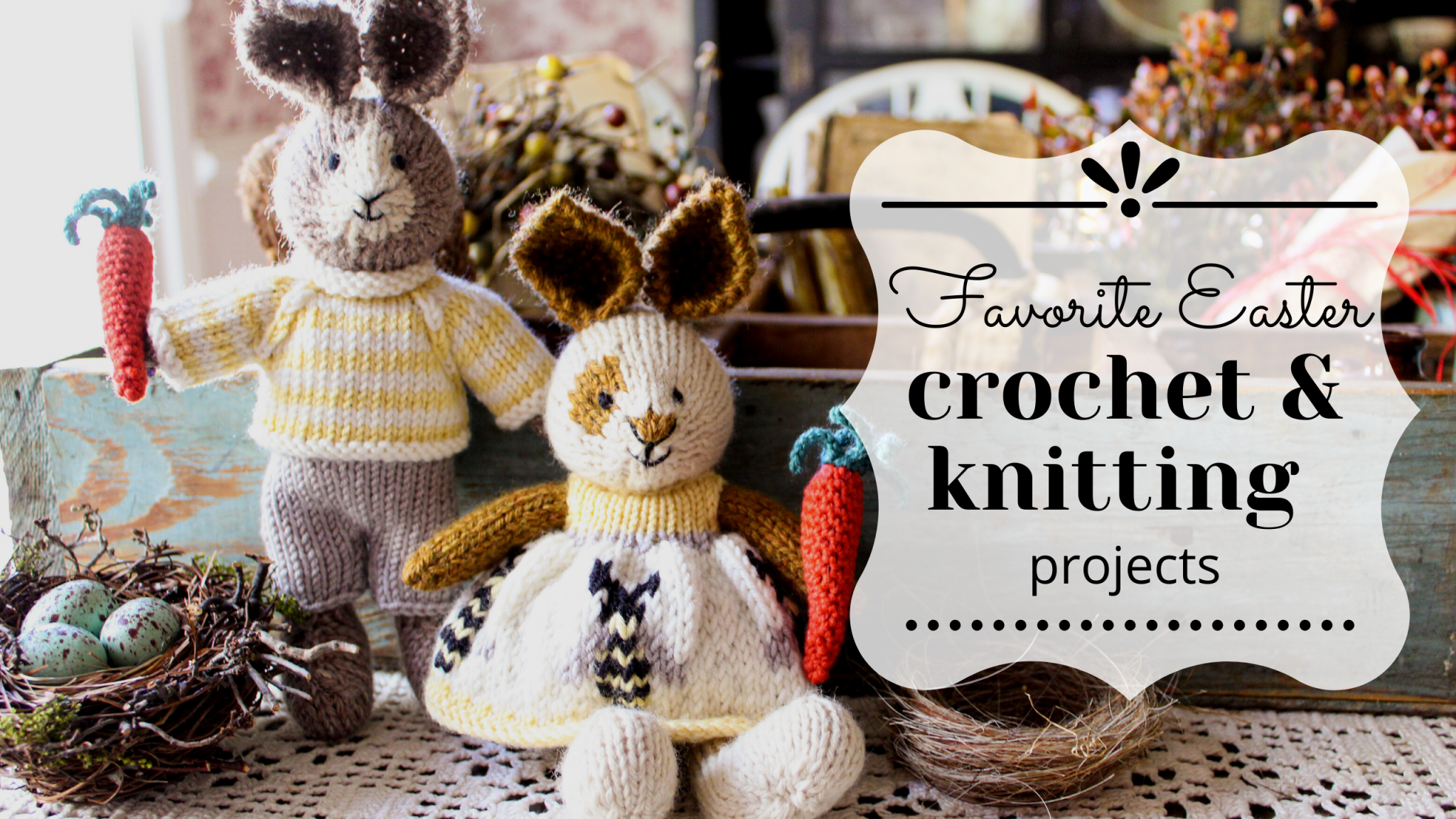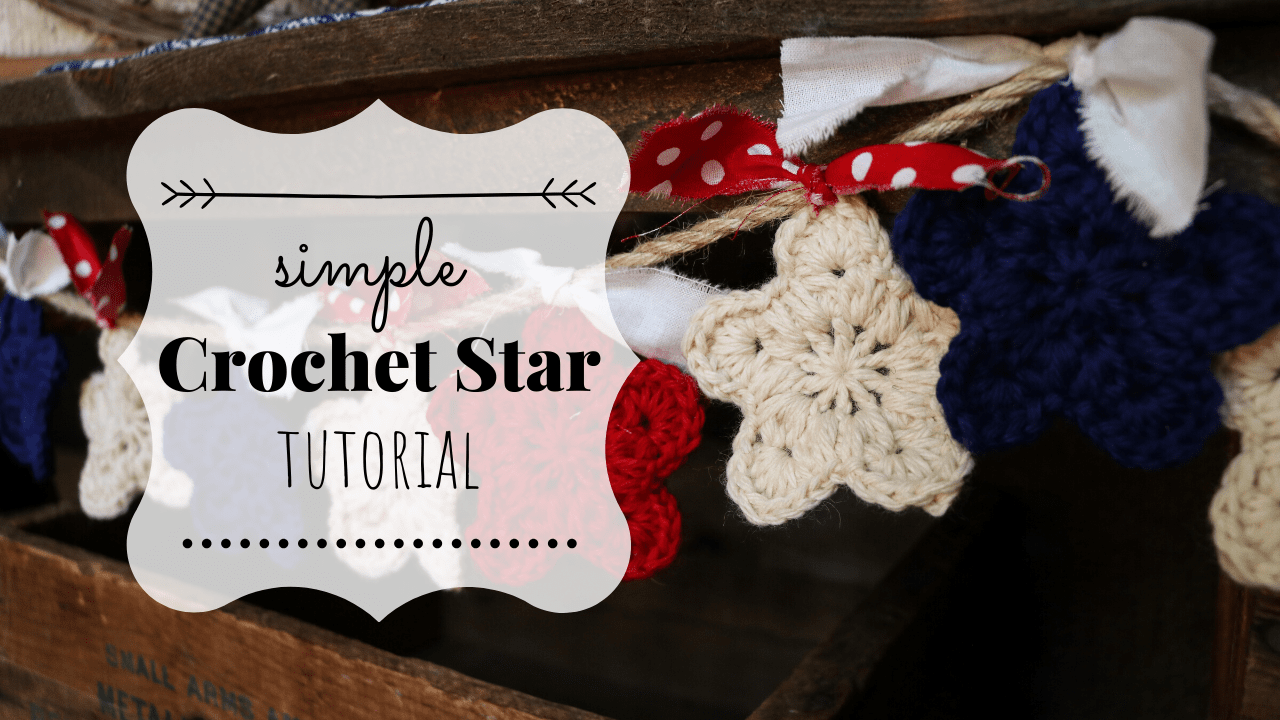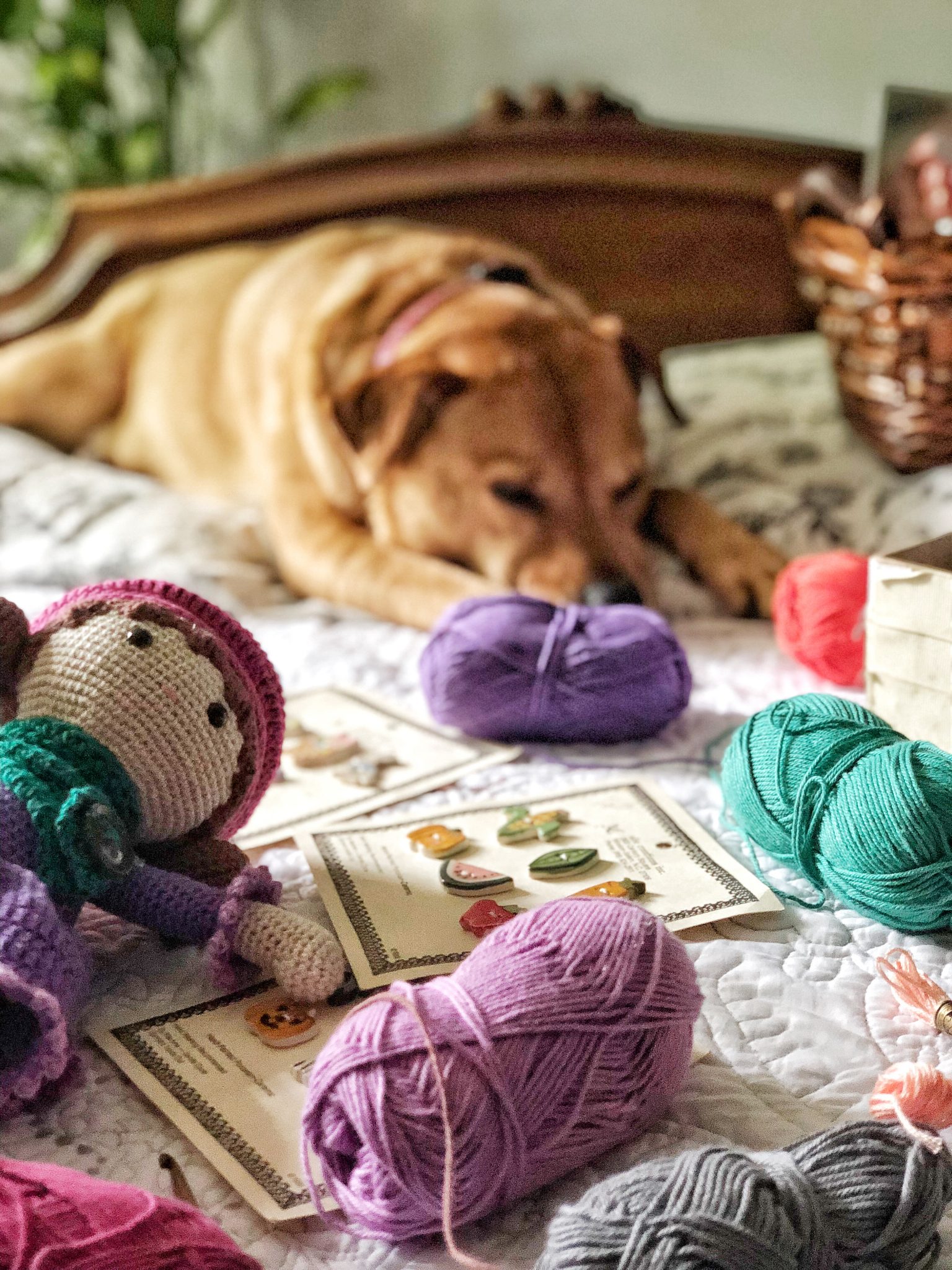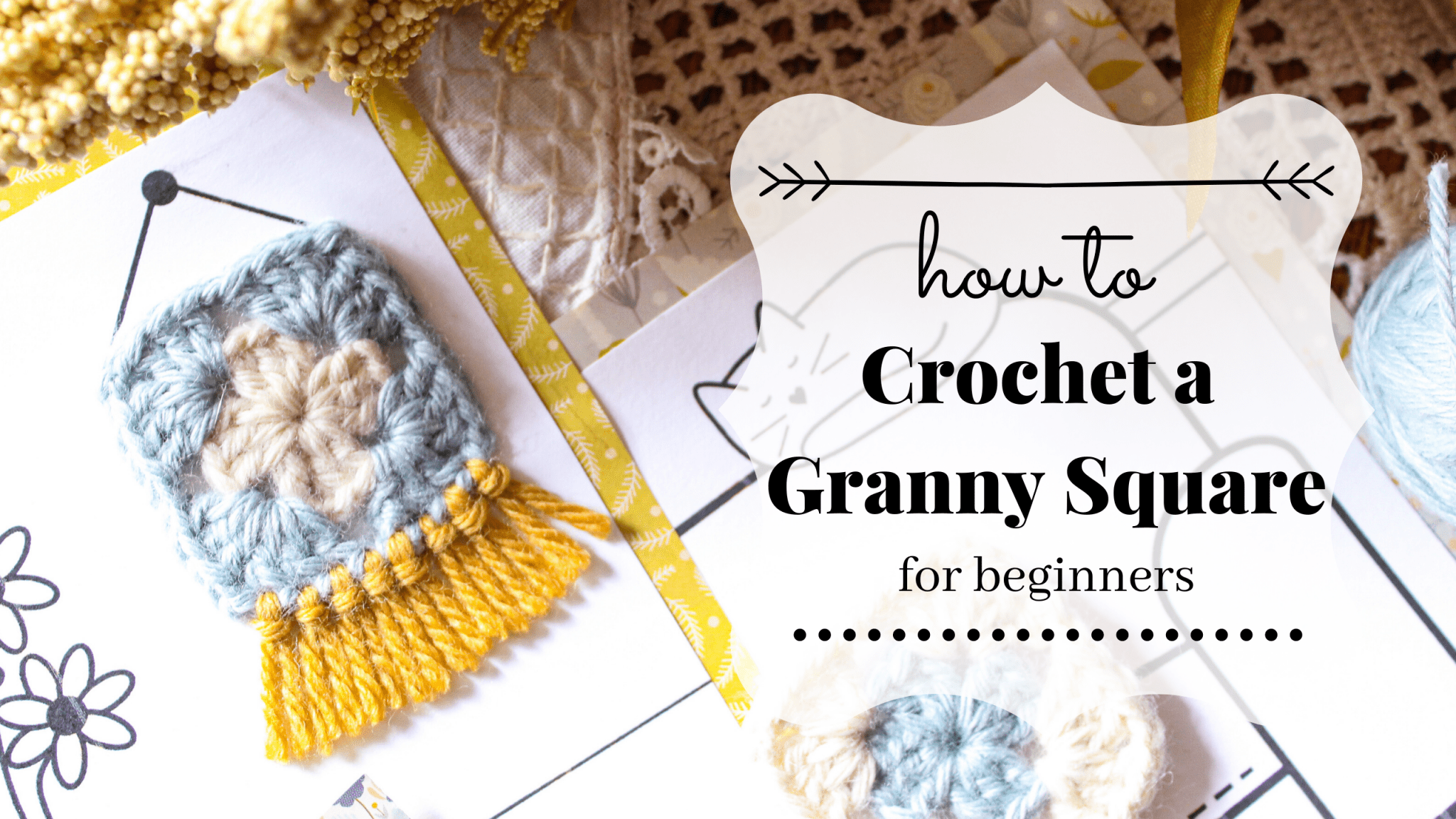Crocheting & Knitting for Better Mental Health
Did you know that crocheting, knitting & mental health are deeply intertwined? Scientific research has proven what crocheters and knitters have already known for centuries. Crocheting and knitting improve ones mental health in a remarkable way.
Ask any crocheter or knitter and they will tell you that crafting helps with the pressures of daily life.
I know it has had a profoundly positive effect on my own mental health. But don’t just take my word for it.
Let’s see if scientific research backs up our claims of improved mood and wellness.
Plus all this science stuff helps us justify our yarn stashes….it’s for our mental health, for goodness sakes!
Crocheting & Knitting for Better Mental Health
I like keeping my blog and YouTube channel light and cheerful, but the truth is that the past few years have been difficult, really difficult.
It hasn’t been a rough time for just me either, the entire world has been under a tremendous amount of stress and hardship.

I truly believe that if it wasn’t for crocheting and knitting, my mental health would be in much worse shape. It has gotten me through some of my darkest days (like when my son was in the hospital in January 2021).
That week I completed almost an entire granny stripe blanket. But more importantly, it helped me stay calm during an incredibly difficult time.
Crochet & Knitting Therapy: Crafting in the Hospital
I’ll be sharing more of my own personal story below, but first I want to dive into what the research shows about crocheting, knitting & mental health.
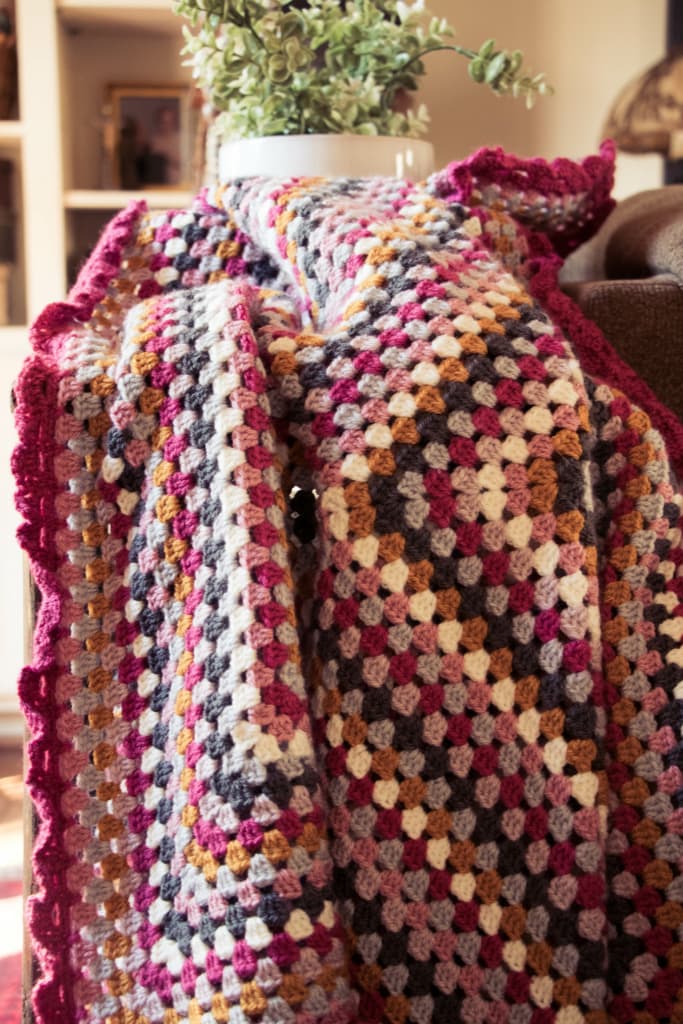
Tom Daley
The Olympic diver Tom Daley made international news at the Tokyo Olympics not just for his incredible athletic ability, but also for his knitting.
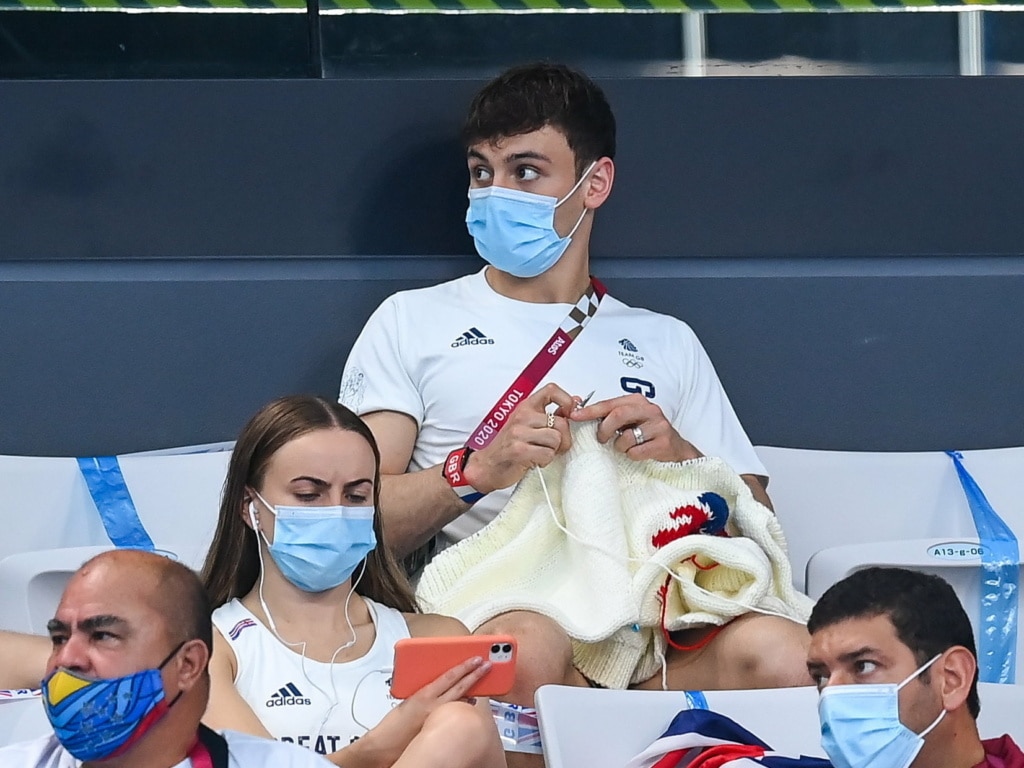
“The one thing that has kept me sane throughout this whole process is my love for knitting and crocheting and all things stitching,”
— Tom Daley
Cameras locked in on Tom while he was knitting in the Olympic stands and the whole world stopped to pay attention.
Tom began knitting during the lockdown as so many others. His routine had been turned upside down and instead of being able to head to the pool for his daily training, he found himself at home just like the rest of us.

He learned how to knit and eventually to crochet from YouTube and became totally obsessed, anyone else relate to those feelings?
Speaking to the New York Times Daley said:
“I was very grateful to have my little cardigan project to give me that little bit of a healthy distraction and at the same time find calm and peace,”
— Tom Daley

Crocheting & Knitting for Better Mental Health
Researchers are beginning to understand how beneficial crocheting and knitting are for better mental health.

“With hobbies like knitting and crocheting, that repetitive motion itself is very therapeutic. It allows your mind to kind of take a step back from whatever is bothering you—or causing you frustration or stress—and allows you to zone out while your mind focuses on that repetitive motion. Before you know it, 30 minutes later, you’ve knitted or crocheted several rows and you’re not thinking about whatever was stressing you out or frustrating you.â€
– Sarah Guenther-Morre – Verywell
What’s wonderful is that Tom didn’t stop knitting when his Olympic dreams of earning a gold medal were over. He has continued to promote the craft through his Instagram account and his own knitwear designs.
UCLA Scientific Research
Not only are crafters taking notice of the mental health benefits of crocheting and knitting, but also major universities.

UCLA (University of California at Los Angeles) reports these amazing benefits of knitting (and I imagine the effects would be the same for crocheting as well):
“Research suggests that the constant, soothing motion of needle art can enhance the release of Serotonin, a neurotransmitter in the body which plays a key role in mood regulation, learning, sleep, and pain perception. The meditative-like qualities produced through knitting can help people “forget†their mental and physical struggles for a certain amount of time on a day-to-day basis. Therapeutic knitting has been connected to combatting depression, anxiety, post-traumatic stress disorder, addiction, eating disorders, and chronic pain, proving that a wide variety of people could benefit from it.”
— UCLA, Mind Well

Stitchlinks
Betsan Corkhill is a physiotherapist, avid knitter and founder of Stitchlinks, an organization dedicated to the research and promotion of the benefits of therapeutic knitting.

Corkhill began her career as a clinical physiotherapist but found that many of her patients had no reason to do the exercises and therapy she was prescribing. She realized that people needed a reason to get off the couch and to get excited about life again.
That frustration led to Betsan drastically changing careers and she began working as a freelancer for leisure publications. One of the jobs she had to perform in that role was reading the letters the publication received every month.
The magazine ran a competition and the way to enter was to write a letter about the benefits of crafting. And the letters poured in from the readers. Many of the responses were quite profound and left a lasting impact on Betsan.
The first letter she read was from a fourteen-year-old girl who had been in and out of the hospital for much of her life. She shared that she didn’t have to take her pain medication when she was knitting.
There were many more stories about the power of craft and the benefits crocheters and knitters experienced, which led to a whole new career path for Corkhill.
— Betsan Corkhill, Stitchlinks

She founded Stitchlinks, which is a hub for all the innovative research and scientific health benefits of therapeutic knitting on mood, memory as well as chronic pain.
One of the most interesting findings from the Stinklinks research is that the more frequently people knit (more than three times a week), the happier and calmer they reported feeling.
Therapeutic Knitting
If you are interested in diving a bit deeper into the benefits of therapeutic knitting, what it is, how it’s different from tradtional knitting and how it can help you, please check out the Institute for Therapeutic Craft and Creativity.
Betsan Corkhill cofounded this organization and that’s where you will find their video course:

The course will cover topics such as:
- The science behind knitting and how to enhance its benefits
- Meditation and meditative states according to the projects you choose
- Stress and how to use knitting to trigger body’s own healing systems
- Pain and the biological perspective
Stitch Away Stress

April is Stitch Away Stress month and the Craft Yarn Council is leading the way to better mental health through crocheting and knitting.

Amigurumi artist, Twinkie Chan, designed an adorable lemon pillow, a cute project, but also a fantastic stress reliever.
The Stitch Away Stress website shares patterns, tutorials, interviews and information about how crocheting and knitting promote reduced stress and a feeling of accomplishment.
Check Out the Stitch Away Stress Website Here

My Story: Crocheting & Knitting for Better Mental Health
I’ve shared my story several times about how I came to crocheting during a very difficult time. In 2016, my older son, who was 17 at the time began to have a very serious health crisis.
At the time he had had epilepsy for most of his life, but it was well controlled with medication. But in the fall of 2016, it suddenly was out of control.

He had two seizures back to back early one morning that were minutes long and he stopped breathing. I have never been so afraid in my entire life. He left our home in an ambulance that morning and my husband and I have never been the same.
Thankfully we were able to get his seizures better under control but the lingering fear continued to plague me.
January 2021
In January 2021, he went into the hospital for routine testing. It is normal for people with epilepsy to be hospitalized during testing because they take patients off some or all of their meds to be able to locate where the seizures are coming from.

We expected him to have a few seizures in a controlled environment, but what were weren’t expecting was that his heart rate was dropping dangerously low every few minutes.
Overnight his heart actually stopped for 12 seconds and a rescue squad ran into the room to shock it back into a normal rhythm.
I can still see that moment, with a dozen or so people in the room surrounding my son. Nurses and doctors were yelling at one another. My mind could not comprehend what was happening all around us.
Finally a nurse noticed that I was standing there in shock and explained to me what was happening and that they needed to get him to the cardiac floor.
Because it was in the middle of Covid, my husband wasn’t allowed to be there with us. He was completely distraught and we were both terrified at what the outcome might be.

I literally crocheted almost an entire blanket sitting there in the hospital. It kept my hands busy so I didn’t completely lose my mind. Every time I see those gorgeous granny stripes I am thankful for the comfort it brought me during those long days and nights.
Thankfully we were in a great hospital and they figured out the problem and we were able to go home a week later in much better shape.
But the anxiety stayed with all of us.
I continue to crochet and knit because I love it, but also because it helps calm my mind like nothing else can.
Crocheting & Knitting for Better Mental Health Pin for Later!



